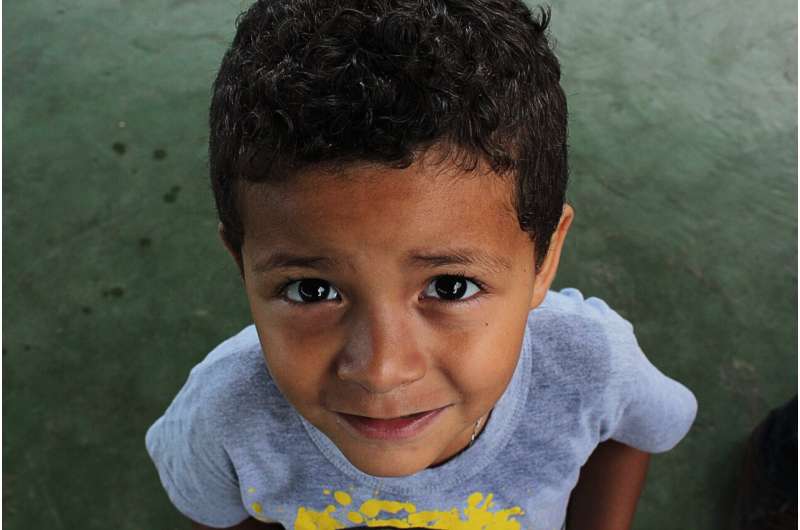Birth cohort study reveals the mental health burden of trauma in childhood

Findings from a major birth cohort study in Brazil suggest that children exposed to life threatening or horrifying events, such as witnessing someone die, or experiencing serious injury or sexual violence, are almost twice as likely to develop psychiatric disorders.
A team of psychologists from the U.K., Brazil and South Africa analyzed data from children tested as part of the 2004 Pelotas Birth Cohort Study. This cohort study, based in the southern Brazilian city of Pelotas, has followed children from birth to age 11 to track their health and life outcomes. The findings have been published in The Lancet Psychiatry.
Data for more than 4,000 children were analyzed for this study to measure the prevalence of anxiety and mood disorders, ADHD and hyperactivity disorders, and conduct and oppositional disorders, and to assess children's exposure to trauma at ages 6 and 11. Traumatic events included those experienced directly by the children, or those witnessed as happening to others, including loved ones.
The results show that exposure to trauma by age 6 was associated with a greater risk of anxiety disorders and psychiatric disorders overall. By age 11, exposure to trauma was associated with an increased likelihood of developing psychiatric disorders overall and four specific classes of disorders: anxiety, mood, ADHD / hyperactivity, and conduct / oppositional disorders. These conditions were between 50% and 100% more likely to develop in the trauma-exposed group than within non-exposed children.
This shows that childhood trauma is related to a considerable, long-term mental health burden in children living in Brazil. By age 11, more than a third of the children (34%) in the cohort had been exposed to trauma of some kind. The researchers say these results have wide implications for people growing up in Brazil and across other low- and middle-income country settings.
Lead researcher, Dr. Andreas Bauer at the Federal University of Pelotas in Brazil (formerly at the Department of Psychology at the University of Bath) explained, "Our study highlights how common childhood trauma was for children born in Pelotas in 2004. By age 11, more than one third of all children had experienced some form of traumatic event.
"Our study shows that these events are associated with a wide range of mental health problems. Some of these are already seen in very young children aged just six. This leads to a long-term mental health burden and policy attention now needs to urgently focus efforts to reduce childhood trauma and address its consequences."
In the study the authors argue that early interventions particularly targeting interpersonal trauma, including violence and child maltreatment, may reduce exposure to childhood trauma and therefore the mental health burden of children.
Co-author on the study, Dr. Graeme Fairchild from the Department of Psychology at the University of Bath, added, "This study shows that rates of trauma exposure amongst children living in Brazil are much higher than amongst children living in the U.K. This study is also one of the first to show that trauma is linked to higher rates of a range of mental health problems in childhood.
"Previous studies looking at the impact of childhood trauma on mental health mostly focused on adults, whereas we were able to show that children were already negatively affected by age six. Our findings suggest that by preventing trauma exposure through education of parents and legal regulation, many children would not go on to develop mental health problems."
More information: Andreas Bauer et al, Associations between childhood trauma and childhood psychiatric disorders in Brazil: a population-based, prospective birth cohort study, The Lancet Psychiatry (2022). DOI: 10.1016/S2215-0366(22)00337-6





















